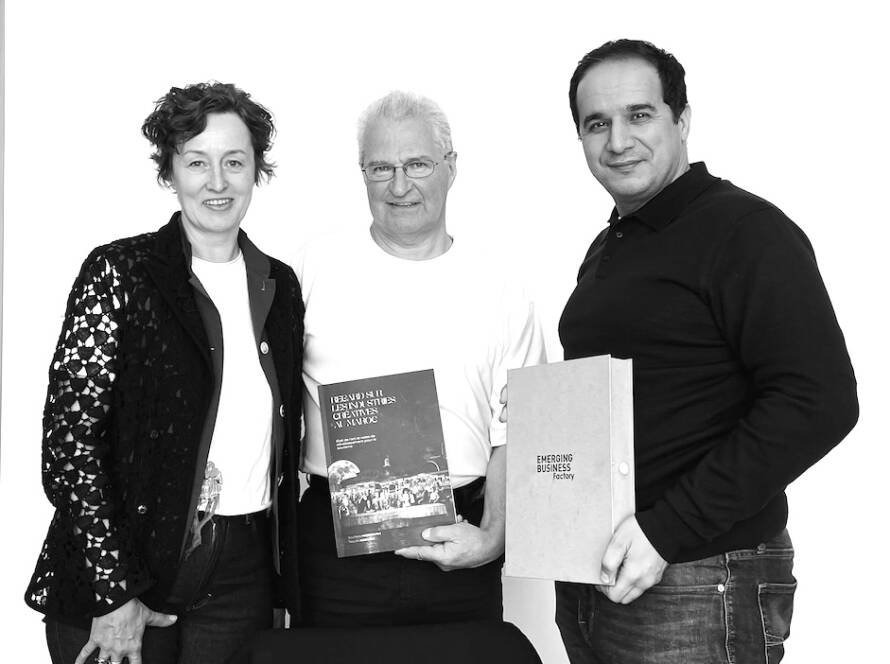“The greatest victory is the one you win over yourself,” wrote Plato. This phrase, so often quoted, remains difficult to embrace when reality collapses around you. In the entrepreneurial world, people like to talk about failure as a stepping stone to success: “Embrace failure,” “Fail fast.” Yet these well-intentioned slogans never address the most painful kind of failure—the one that doesn’t measure up in numbers or results, but that takes something fundamental from within us—as if the victory Plato spoke of could never be achieved simply by trying to win every battle.
This kind of failure isn’t spectacular. It doesn’t happen all at once; it seeps in slowly, almost without notice. It starts with a balance we thought we had mastered, but that gradually cracks under the weight of ambition and responsibility. At first, we believe everything is fine, that we’re managing well, that success is just around the corner. Then, insidiously, we start overlooking a tired look, an implicit consent that fades, a silence heavy with meaning that we choose to ignore. It’s a subtle form of egocentrism that creeps into our decisions, driven by the belief that what truly matters can wait, that we’ll catch up later on what we left behind.
Then one day, everything changes. It’s not a public failure, not an explosive downfall. It’s a quiet, yet relentless collapse when the truth hits without warning. A key collaborator leaves, a team becomes drained without us noticing why, a connection breaks without us seeing it coming. Suddenly, we realize that while we seemed to succeed outwardly, we lost something fundamental along the way. Trust has been eroded, the dynamic has faded, and we are left facing a disconcerting truth: professional success can never make up for the emptiness left by a personal imbalance.
The real challenge, then, is finding the humility to accept this painful truth. To consent to facing this failure, not as a form of self-punishment, but to understand it. To grasp that the balance we thought solid was, in reality, built on fragile foundations, eroded by excessive ambition and a waning sense of attentiveness. It’s a harsh, almost brutal moment when clarity forces us to confront our shortcomings, our misjudgments, our absences.
Sometimes, this realization emerges during a simple, almost banal moment, but one that shakes us deeply. A hot shower, a repetitive gesture, and suddenly, a blinding clarity: we can’t lie to ourselves anymore. We understand that we’ve clung too long to the idea of an unbreakable balance. That night, quietly but with an overwhelming intensity, we realize we can’t go on like this, that something must change at its core.
Rebuilding after such a failure means reassessing what needs to change within us. It means acknowledging that balance is never a given but an ongoing effort, a constant vigilance. It requires bringing sincere listening back to the heart of our actions, giving empathy the place it deserves, and no longer ignoring the subtle signals we once chose to overlook. It also means reevaluating our relationship with ambition, accepting that victory doesn’t lie solely in outward success but in the coherence between what we pursue and who we are.
Rebuilding also involves accepting that some things can’t be forced back together. Sometimes, we realize that certain things have irreparably broken, and continuing to carry them is no longer feasible. We have to let go of what no longer holds, consenting to reinvent ourselves without trying to piece together scattered fragments.
This is not about giving lessons or pretending to have the perfect answer. It’s simply about acknowledging a shared reality: no one is immune to this quiet failure. We can all lose our way, sacrifice what matters most for a success that ultimately doesn’t fill the inner void. But this failure, however painful, holds within it the potential for a new victory.
Perhaps that’s what the greatest victory over oneself truly is: recognizing our missteps with humility, accepting the need for change, and relearning how to balance ambition with integrity. It’s in this rediscovered sincerity that real strength lies. Transforming this personal failure into a catalyst for growth—not by erasing it but by embracing it as a demanding teacher that reminds us that lasting success is nourished by listening, respect, and harmony.
Far from the easy slogans about failure, this path to rebuilding is challenging, but profoundly human. It teaches us that true success doesn’t lie in being invincible but in staying true to ourselves and to others, even when the balance wavers. And in this relentless pursuit of clarity, perhaps that’s where we finally find the most valuable victory.
This translation was thoughtfully crafted with the assistance of AI.


